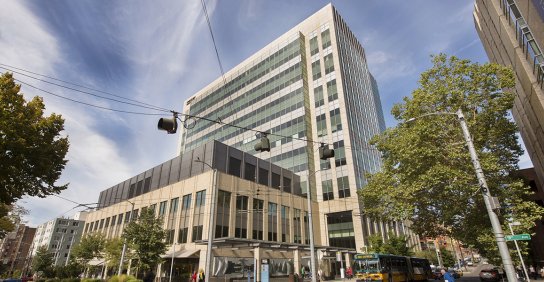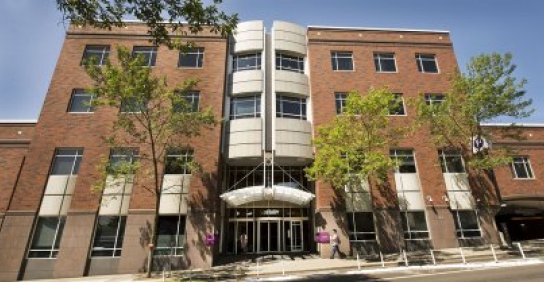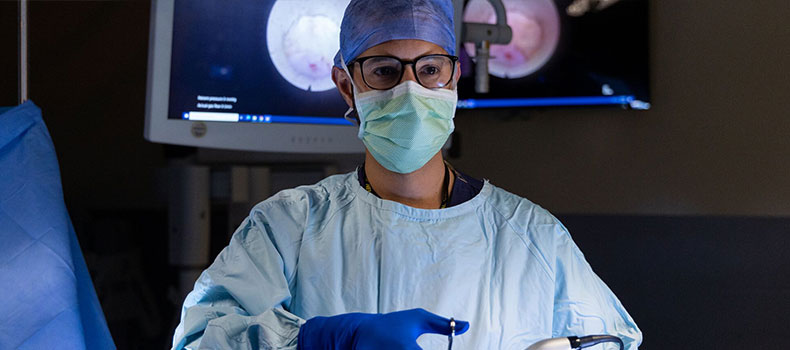Dr. Bransford specializes in spinal disorders and trauma. In addition to helping his patients, he also leads the spine surgery fellowship program, training the next generation of surgeons.
Minimally Invasive Spine Surgery
Minimally invasive spine procedures can relieve your back pain faster and with less pain during recovery.
Minimally Invasive Spine Surgery
Minimally invasive spine procedures can relieve your back pain faster and with less pain during recovery.

Minimally invasive spine surgery at UW Medicine
Minimally invasive spine surgery (MISS) uses smaller incisions to correct your spine condition. Our expert spine surgeons can help you get back to your normal activities with as minimal disruption to your life as possible.
Visit the Spine Surgery page >>
Why choose UW Medicine
At UW Medicine, we offer more options for minimally invasive spine surgery, including endoscopic spine surgery, than most other spine centers. Our spine surgeons have special training to perform these procedures as safely as possible.
What is minimally invasive spine surgery?
Minimally invasive procedures use smaller incisions, often 1 to 2 inches, and sometimes even less. Your surgeon will insert a tube-shaped tool, called a tubular retractor, into your spine. The tube gently pushes through your muscles and any soft tissue to give your surgeon a clear path to your spine. Guided by advanced imaging, your surgeon uses special tools to complete the operation.
Benefits of minimally invasive spine surgery
MISS techniques are faster and can lead to an earlier return to function compared to traditional spine surgery. Other benefits may include:
- Decreased blood loss during surgery
- Minimized damage to healthy tissues (such as muscles and ligaments)
- Reduced infection risk
- Reduced post-operative pain
- Shorter hospital stay and faster overall recovery time
Spine conditions we treat with minimally invasive techniques
Our spine surgeons use the latest treatments and minimally invasive spine surgery techniques to treat a variety of spinal conditions including:
- Degenerative disc disease
- Fractured vertebra
- Herniated discs
- Nerve compression
- Spinal instability
- Spinal stenosis
- Spondylolysis
What to expect with minimally invasive spine surgery
MISS procedures are not suitable for all patients. Talk with your surgeon to determine if you may be a good candidate. In general, these techniques work well for patients who:
- Have not found relief with conservative therapy
- Have specific spinal conditions that respond well to MISS
- Have not had repeat back surgeries or multiple incisions in same area of the spine
- Have no disqualifying health conditions

Richard Bransford, MD

Mahesh Karandikar, MD
Dr. Karandikar provides a full range of spine surgical care and spends time with each and every patient to find the right solution for them.

Viral Patel, MD
Dr. Patel is an experienced spine surgeon and knows each patient is different. That’s why he values partnering with his patients to decide on the best solutions together.

Spine Center at Harborview

Spine Center at UW Medical Center – Northwest
Learn about this location in Seattle’s Northgate neighborhood >>
Fax 206.363.0019

Spine Center at UW Medical Center – Roosevelt
Learn about this location in Seattle’s University District >>
Fax 206.598.6360

